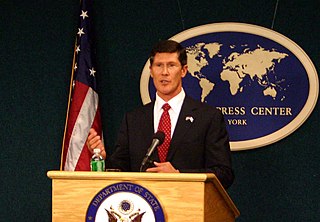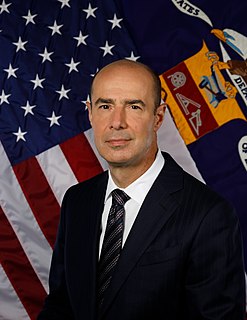A Quote by Janet Yellen
We're charged by Congress with regulating financial institutions. We take that mission seriously. We are tough supervisors and regulators.
Related Quotes
FinCEN directs financial institutions to file suspicious activity reports (SARs) to inform law enforcement of certain types of cyber-enabled crime. As the agency charged with protecting the United States from financial crime, FinCEN's guidance does not deem financial institutions who process such transactions to be involved in a criminal activity.
The global financial crisis is a great opportunity to showcase and propagate both causal and moral institutional analysis. The crisis shows major flaws in the way the US financial system is regulated and, more importantly, in our political system, which is essentially a bazaar of legalized bribery where financial institutions can buy themselves the governmental regulations they want, along with the regulators who routinely receive lucrative jobs in the industry whose oversight had formerly been their responsibility, the so-called revolving-door practice.
There are a number of institutions globally where the Federal Reserve typically leads the U.S. effort to work with financial regulators from other countries, and we try to, to the extent possible, establish international standards for how - the amount of capital a bank should hold, for example, or how much.
Financial institutions are not being bailed out as a favor to them or their stockholders. In fact, stockholders have come out worse off after some bailouts. The real point is to avoid a major contraction of credit that could cause major downturns in output and employment, ruining millions of people, far beyond the financial institutions involved. If it was just a question of the financial institutions themselves, they could be left to sink or swim. But it is not.
Growth requires risk-taking. If you want to dampen risk and make sure you never have a problem, you do so, but that also will have an effect on growth. This is a decision that doesn't necessarily belong to financial institutions. It belongs to regulators and legislators who represent the body politic.



































